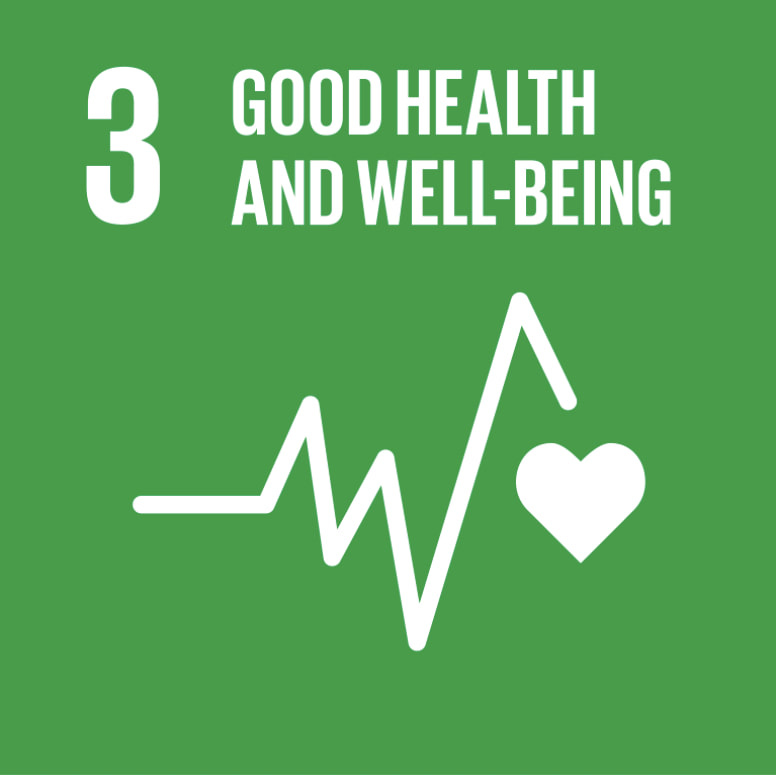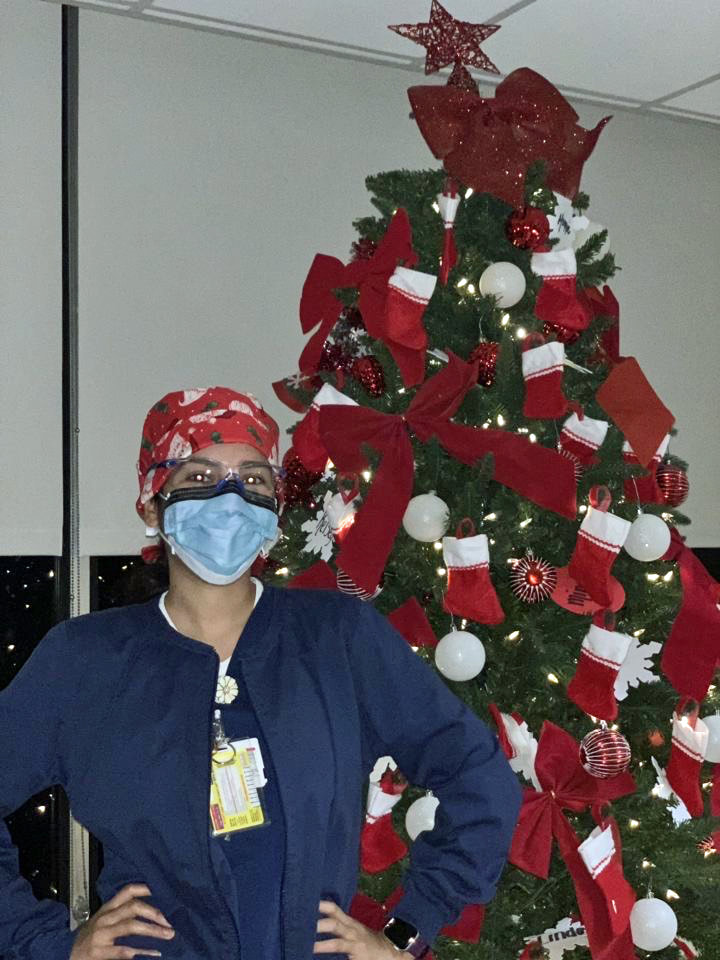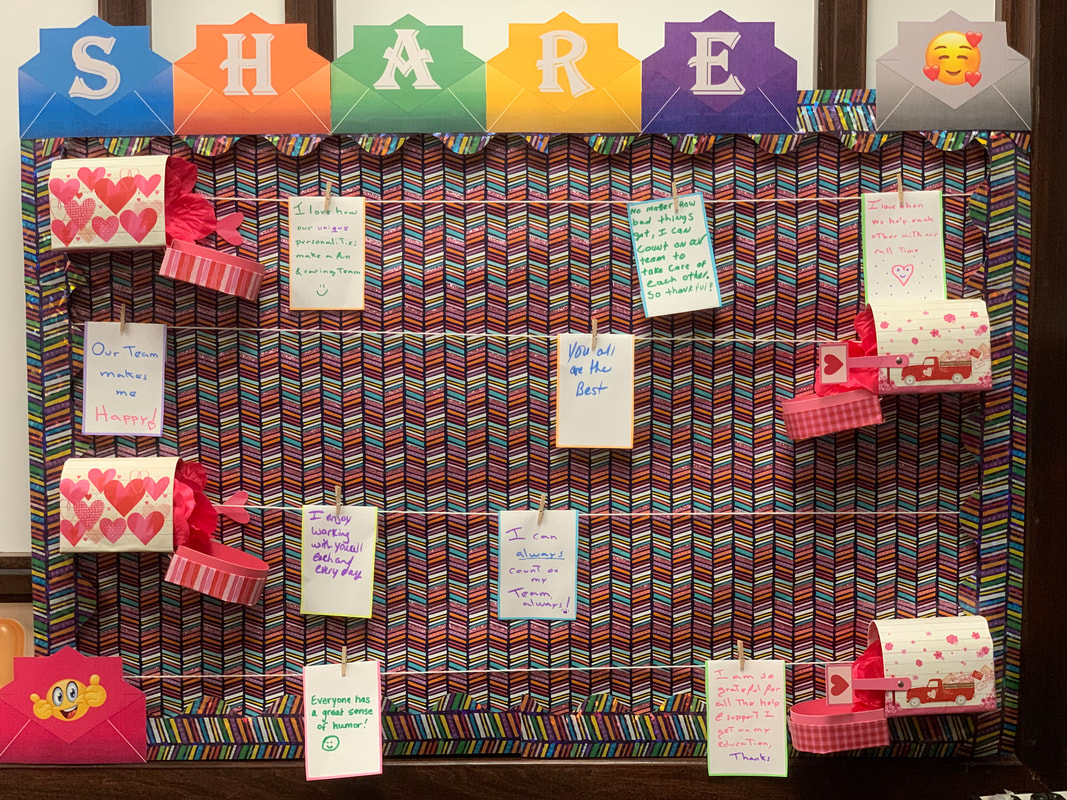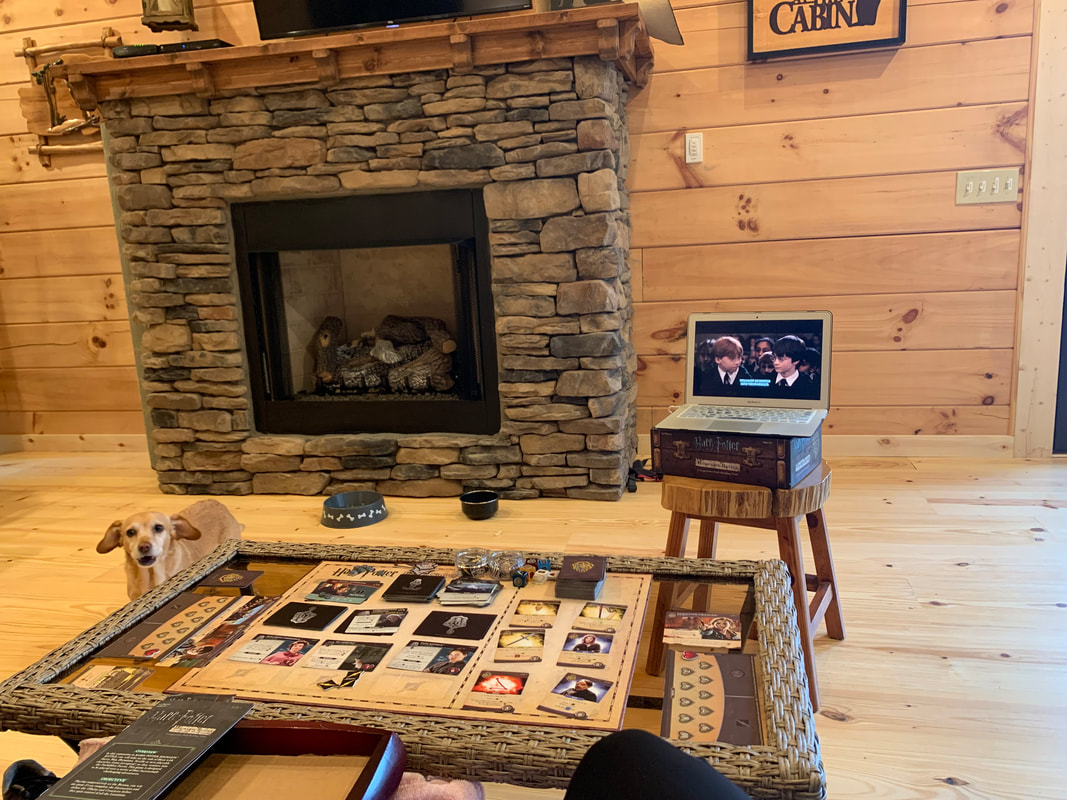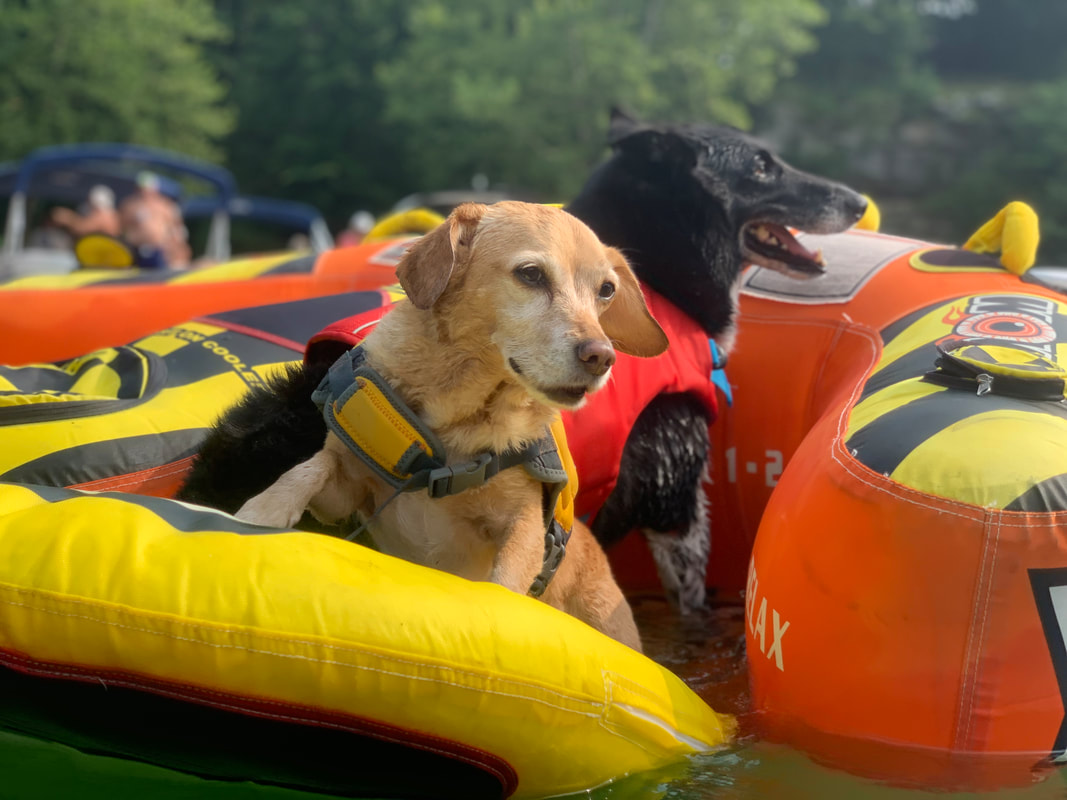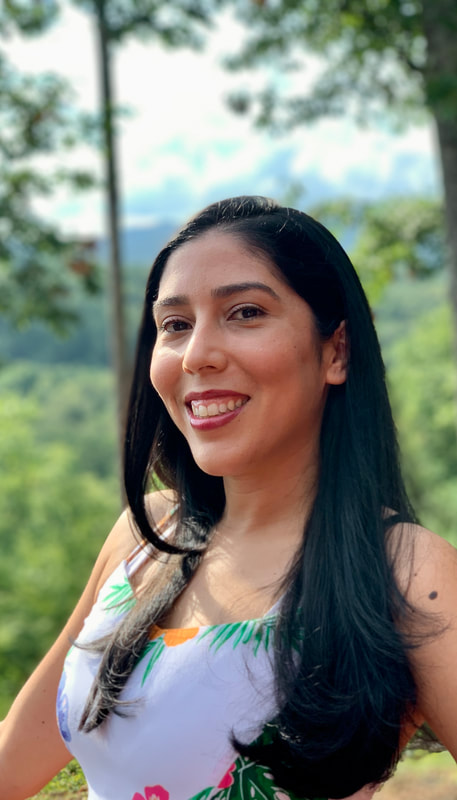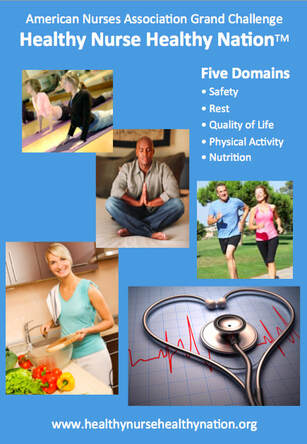Golden Gate Bridge image from Maaten van den Heuvel and Unsplash
DATELINE: March, 2022
|
'Change!' This six-letter word is shaking the entire planet with the Covid-19 pandemic. Regardless of your culture, religion, and socio-economic influences, we have been impacted by the rapid and turbulent changes brought by the pandemic. This story is about how I perceived that the pandemic struck my Endoscopy team. It shows our journey in finding the light in a moment of uncertainty. It is about staying together even when physically apart, and how we persevered and adapted through times of change.
I was born in a conservative region of a South American country. It was a society that instilled gender roles from an early age. From my early teens, I felt that I was missing something. In 2001, at the age of seventeen, I boarded an international flight alone to meet |
“Regardless of your culture, religion, and socio-economic influences, we have been impacted by the rapid and turbulent changes brought by the pandemic. ”
|
my mother. She lived in the United States in Ohio. It was the first significant change in my life, and it was what I was missing. It was not because I came to the land of the free or to live the American dream, but because my life had changed. It allowed me to change by not having to fit into the norms of my former life. So, I embraced change and vowed to stay adaptable.
|
“So, I can tell you that 2020 tested my love for change with ferocity!”
|
In 2019, I received my nursing license. Becoming a nurse was the only time in my life that I felt as empowered as I did when I arrived in the United States. One of the reasons nursing is my life calling is that it allows me to merge science with the art of caring. I also found my perfect job with a fantastic Endoscopy team that encompassed kind, inclusive individuals. To top all the tremendous changes in 2019, I married the most thoughtful man I have ever known. I was eager to see what surprises and changes 2020 would bring; So, I can tell you that 2020 tested my love for change with ferocity!
|
|
Even in a field where change is the norm, we were not immune to fear, hopelessness, and desperation. In January 2020, there were already suspected Covid-19 cases in Ohio. At that moment, herd behavior was working in our favor. Herd behavior is defined as the tendency of people to think and behave like the people around them. (1)
While we were frightened, we depended on each other to stay focused and serve our community. It was incredible to witness how much humans can endure in a moment of sorrow and uncertainty. We were also fortunate that our health system was proactive in preparing for the upcoming shortage of personal protective equipment (PPE) and spike of Covid-19 cases. We quickly developed an 'Incident Command Center' (ICC) to efficiently distribute PPE, redeploy personnel, promote safety guidelines, and collaborate with other health institutions to serve Ohioans. (2) |
“It was incredible to witness how much humans can endure in a moment of sorrow and uncertainty. ”
|
|
During our second COVID wave, I was redeployed to a cardiovascular step-down unit to work the night shift during the Christmas holidays. Image from the author's archives, used with permission.
|
As we were trying to figure out how we would care for our Endoscopy patients, we received the news that Covid-19 hospitalizations were surpassing our in-patient bed capacity.
As a result, we were repurposed to other areas to help our colleagues. We adapted to our new roles quickly while working various shifts and overtime hours. Some of us worked over 60 hours to ensure patients received appropriate care and allow other coworkers to recharge. Change is typical in our profession and we are accustomed to embracing it. However, the amount and rapidity of the change altered family dynamics — producing higher stress levels. Our tight-knit herd was divided, and morale was buried three meters under the ground. People were exhausted from feeling hopeless, watching people suffer or die from Covid-19. The care for the patients who were not Covid-19 related was negatively impacted. One of the significant problems with this pandemic is that it interrupted patient care for our out-patient community. We had to prioritize who could be admitted. No matter how adaptable to change healthcare professionals are trained to be, we were not emotionally and physically prepared to triage that magnitude of patients. |
|
“Our tight-knit herd was divided, and morale was buried three meters under the ground. People were exhausted from feeling hopeless — watching people suffer or die from Covid-19.”
|
I feel that the media could not truly grasp how healthcare providers were affected by the pandemic and I do not have the words to express this either. I remember the tears of co-workers trying to stay committed to their oaths to healing others — while barely keeping afloat from anxiety and fatigue. We were not going to abandon our duty to help and protect the health of our community. But we were also risking the lives of our loved ones. As our co-workers and their families started getting sick with the virus, our stress levels increased tremendously. The virus was now directly affecting our team members’ health, while some of our families and loved ones passed away from it.
|
“The virus was now directly affecting our team members’ health, while some of our families and loved ones passed away from it. ”
|
|
To help my team, I went back to the fundamentals of holistic care and healing. In these moments of darkness, we needed to find something that would lead us to the light. So, I found a way to stay connected even when working with other teams. I created several encouragement boards that allowed us to share kindness with each other to help our morale and resiliency.
Our first board was about celebrating each person individually. Each of us represented an emoji character and had a cup under it where people could drop messages. People wrote encouraging words, thank-you notes, and jokes. It was all about finding something nice in our break-room and reminding us that we were a strong team who values inclusion and diversity. This reminded us that — while we were away — we were in each other's hearts and thoughts; we were never alone. Our latest board is about sharing the collective love for the team. These boards serve as instruments to build our team spirit, while making the best out of the COVID pandemic limiting our social gatherings. |
Above is one of the many boards I created in our break-room to promote morale by allowing us to share what we love about our team while away. Image from the author's archives.
“This reminded us that—while we were away—we were in each other's hearts and thoughts; we were never alone. ”
|
|
“Slowly but steadily, we were working together to build each other up, and let us continue to serve. ”
|
Meanwhile, doctors volunteered to provide free osteopathic manipulative treatment to help us heal mentally and physically between our shifts. We received hands-on stretching and repositioning. It is incredible to experience — first-hand — the benevolence of human beings utilizing their abilities to bring joy and support to others. Slowly but steadily, we were working together to build each other up, and let us continue to serve.
We helped each other by sharing our emotional distress and finding at-home interventions to improve our resiliency. Some of us tried mindful meditation, which is self-awareness of your bodily emotions, while removing negativity and bringing peace to the mind. (3) |
|
To help my own mind and body, I started to practice mindful stretching with my husband. After mindful activities, we felt peaceful and more connected as a couple. My family also started to play more board games. We spent fun nights at home playing against each other or together to defeat the game.
My favorite hobby is traveling, so I was sad that my international trips were canceled for at least two years. Many of us decided to explore the beautiful landscapes within our nation, making the best out of our current situation. My husband and I were anxious about flying with high Covid-19 infection rates. And we do not enjoy excessively long drives. So, we decided to travel within the eastern United States. We would randomly select places based on the convenience of solitude and isolation. It has been an extraordinary experience. |
My husband and I love playing board games to help us relax and recharge from our daily duties with our dog Camila watching. Image from the author's archives.
|
We have visited remote towns that are full of wonders. This made us reflect on how fixated we were about exploring other countries while neglecting ours. Our dogs loved our road trips and their smiles brought us much happiness. I learned that — in the moments of adversity — I cannot let myself be drawn to negativity in moments of uncertainty.
|
“We have visited remote towns that are full of wonders. This made us reflect on how fixated we were about exploring other countries while neglecting ours. Our dogs loved our road trips, and their smiles brought us much happiness. ”
Regardless of all the barriers and disappointments during the Covid-19 pandemic, we were able to embrace our profession. Change is hard, but it is needed to help us grow and improve our abilities. We worked hard, changed our lives, and became experts in adapting to serve our community while caring for our families. Being a nurse is about compassion and dedication to preserving the right to health. We were trained to treat our patients holistically by addressing their physical, emotional, spiritual, and social needs. The Covid-19 pandemic helped us strengthen our perseverance and adaptability, so I am very enthusiastic about our profession's future and I hope the lessons learned during the Covid-19 pandemic help future generations of nurses and transform our nursing philosophies and culture. Through change we rise!
|
In August 2021, we enjoyed the lovely summer weather at the beautiful Lake Cumberland in Kentucky. Our dogs — Camila and Dante — loved spending the entire day outside running, swimming, and chilling in the floaties. Image from the author's archives.
“Being a nurse is about compassion and dedication to preserving the right to health. We were trained to treat our patients holistically by addressing their physical, emotional, spiritual, and social needs.”
|
About the Author
Maria Gabriela Sison is 38 years old — an altruistic Registered Nurse living in the Midwest of the United States. Thanks to the support of family, friends, and co-workers, Maria achieved her life calling of becoming a nurse. As a nurse, she found purpose and a
|
passion for research and health policy. Maria is committed to upholding ethical principles and utilizing evidence-based practice. She is devoted to protecting the universal right to health and being a conduit to help people meet their bio-psycho-social needs.
Maria has embraced two essential philosophies to protect, serve, and advocate for health and wellness. The Nursing Need Theory by Virginia Henderson is the model she uses to deliver a holistic nursing care approach. The Servant Leadership Theory guides her in supporting healthcare professionals. The practice of these theories empowers her to continuously merge science with the art of nursing and keep striving to do better. Maria wants to become a health strategist who influences public and private organizations to eliminate the barriers to health and wellness. She also wants to improve the working conditions of healthcare professionals by advocating for better policies. It will be a long journey to reach her career goals. Therefore, she is completing a Masters in Science of Nursing with legal studies at Capital University in Ohio. This is helping her learn how to participate in policy change, understand the complexity of the United States health care system and utilize theory to implement change. |
On a personal note, Maria has family in various countries. She is married to a Filipino American and they have two beautiful dogs who love going on road trips to small towns. In addition, Maria is a board game enthusiast and a big fan of Star Wars. Lastly, she loves dancing and singing even though she is tone-deaf.
|
“I am very enthusiastic about our profession's future and I hope the lessons learned during the Covid-19 pandemic help future generations of nurses and transform our nursing philosophies and culture.”
|
References:
- CommonLit. (2014). Herd behavior. https://www.commonlit.org/texts/herd-behavior
- American Hospital Association. (2022). The value of health systems during the Covid-19 pandemic: OhioHealth – Columbus, Ohio. https://www.aha.org/case-studies/2021-06-02-value-health-systems-during-covid-19-pandemic-ohiohealth-columbus-ohio
- Chery, K. (2022). What is mindfulness meditation? https://www.verywellmind.com/mindfulness-meditation-88369
DATELINE: June, 2017
American Nurses Association Grand Challenge...
“Healthy Nurse, Healthy Nation” --
Envisioning A Healthy World
By: Barbara Dossey, PhD, RN, AHN-BC, FAAN, HWNC-BC
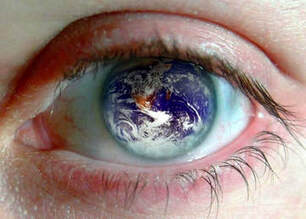
Annual surveys report that nurses are the most trusted profession year after year. But, nurses underestimate the impact that they have on the health of patients/clients — on the healthcare delivery culture — and on society at large.
The fact is that our society is watching not only what nurses do as a profession. It is watching what we do as individuals. Looking at our potential — this is an enormous position of power to both influence health one-on-one and to impact upon the health of society. Nursing practice can envision, advocate for and make major contributions to a healthy world.
The fact is that our society is watching not only what nurses do as a profession. It is watching what we do as individuals. Looking at our potential — this is an enormous position of power to both influence health one-on-one and to impact upon the health of society. Nursing practice can envision, advocate for and make major contributions to a healthy world.
While nurses have a positive influence on health of the nation and the world, it is not generally acknowledged that nurses are the sustaining anchor for how every hospital, clinic, and community actually functions, throughout the world. Indeed, without nurses the health of humanity would collapse. But, to have a healthy nation, we need healthy nurses.
Meanwhile, many of us have lost how to source from the personal wisdom that drew us into nursing in the first place. We find that we are expected to do more and to do better. We are stressed taking care of others. But we are not taking care of our selves. For instance, many report that they do not take lunch breaks — or short breaks, of any kind — regardless of where they work. If they eat, at all, it may be at a desk multi-tasking, answering e-mails or other work-related activities. These habits are not healthy. The American Nurses Association (ANA) defines a healthy nurse as “one who actively focuses on creating and maintaining a balance and synergy of physical, intellectual, emotional, social, spiritual, personal and professional wellbeing.” With these ideas in mind, the ANA has created a Grand Challenge to nurses everywhere — outlining five 'Domains' to encompass the self-care habits we need to give ourselves.: Safety, Rest, Quality of Life, Physical Activity and Nutrition. |
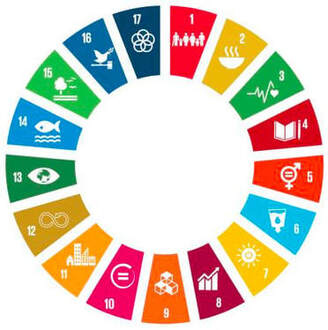
But, I am often also asked how do nurses relate to local and global health? This is a very important question. I believe the most important focus right now are the United Nations 17 Sustainable Development Goals (SDGs) that provide a foundation and framework where nurses — and all individuals, all communities, and all nations — can work toward the same goals to achieve healthy people living on a healthy planet. This gives us a voice and a platform to remember that whatever we are doing locally impacts us globally. As nurses. we know about the environmental and social determinants of health.
We can be alert to what is happening environmentally. For example, where ! live in Santa Fe, New Mexico, we had a big snowmelt last March and brown water flowed into certain locations in our city water system. This lasted for three weeks. Luckily we had bottled water to drink. We had to boil our water before hand washing dishes to make sure it was safe. We had awareness of the health risks of dirty water. This is UN SDG # 6!
Also, when we consider the local social determinants, we become aware that there is a lot of poverty and a breakdown of the primary family. So many people live without a direct relationship to a primary family member and have no one to call when they need help. This is another example of an issue that directly affects the health of people and the health of our neighbourhoods. This is an example of UN SDG # 1.!
It’s important that we go to city council meetings and speak from our expertise — as nurses — and offer suggestions for a healthy community. This demonstrates UN SDG # 11!
We can be alert to what is happening environmentally. For example, where ! live in Santa Fe, New Mexico, we had a big snowmelt last March and brown water flowed into certain locations in our city water system. This lasted for three weeks. Luckily we had bottled water to drink. We had to boil our water before hand washing dishes to make sure it was safe. We had awareness of the health risks of dirty water. This is UN SDG # 6!
Also, when we consider the local social determinants, we become aware that there is a lot of poverty and a breakdown of the primary family. So many people live without a direct relationship to a primary family member and have no one to call when they need help. This is another example of an issue that directly affects the health of people and the health of our neighbourhoods. This is an example of UN SDG # 1.!
It’s important that we go to city council meetings and speak from our expertise — as nurses — and offer suggestions for a healthy community. This demonstrates UN SDG # 11!
Image Credits: All photos used on this webpage and in the above powerpoint are derived from Dr. Dossey's archives. The above 'Health & Well-Being Determinants' Word Cloud was created by NIGH's graphics team. The colour wheel encompassing all 17 UN SDGs and their logos was accessed from the UN's World Meteorological Organization (WMO) and used with appreciative attribution.
Nightingale Initiative for Global Health • 2020 ©
